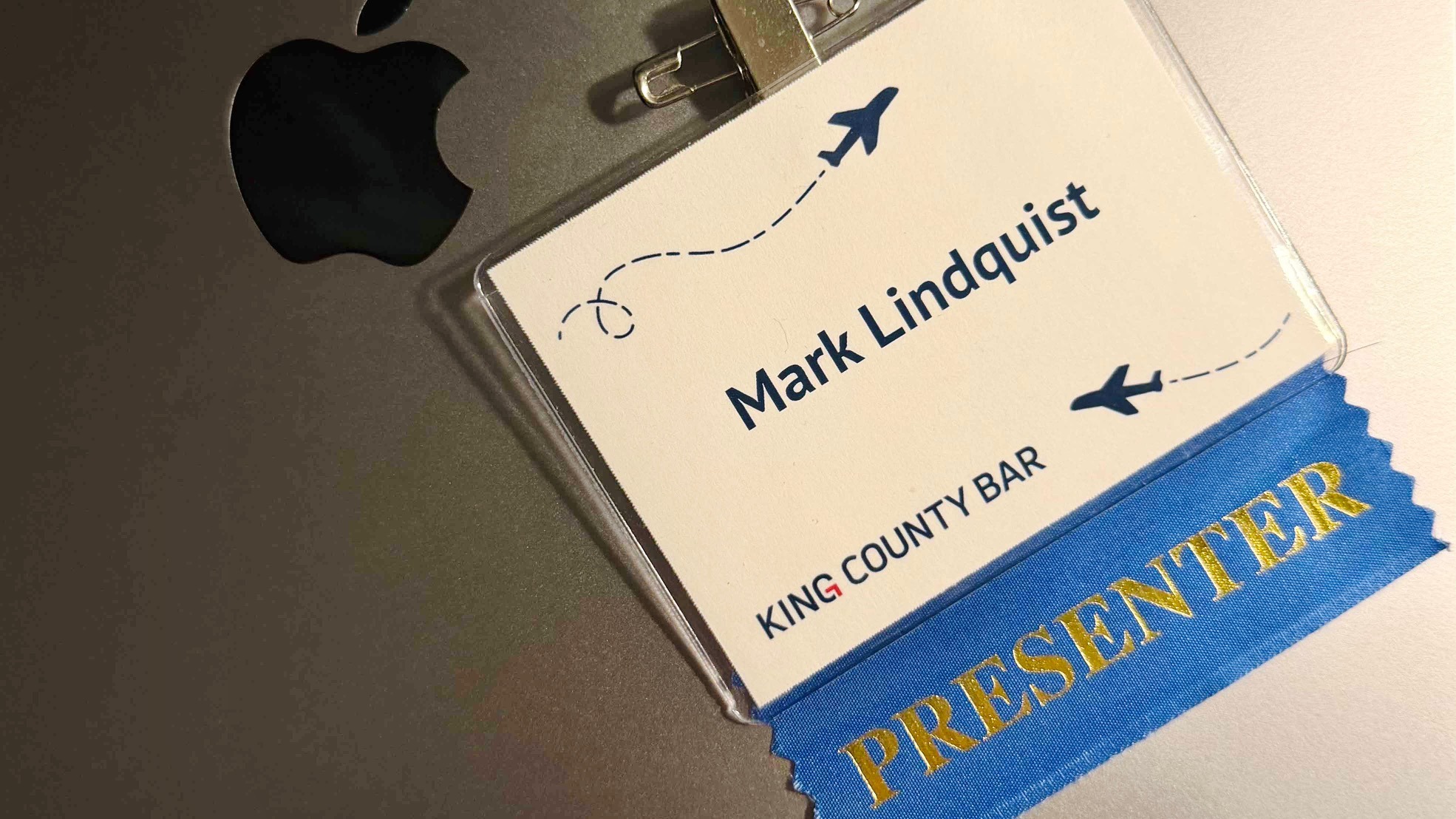In-Flight Sexual Assaults

Mark was honored to speak at the King County Bar Association’s 2025 annual Continuing Legal Education conference for Aviation Section members. His focus was on in-flight sexual assaults.
As he noted in his presentation, 96 cases of in-flight sexual assault were reported to the FBI in 2023 and the number went up to 104 in 2024. The FBI has publicly announced their concern with the “uptick” and encouraged victims to report these crimes.
According to the FBI investigations, most in-flight sexual assaults begin when the victim is sleeping or resting with eyes closed. Suddenly the victim feels a seat mate’s hands inside their clothing or outside their clothing on private parts.
Victims Can File Lawsuits
Aviation and personal injury attorneys with proper experience can file lawsuits on behalf of victims and can also work with law enforcement. This increases the odds of full accountability, justice, and closure.
Mark Lindquist Law has successfully prosecuted these cases. Though the amounts of the settlements are confidential at the request of the defendants, these are significant cases and can result in significant compensation.
Before he became an aviation and injury attorney, Mark Lindquist served as the elected Prosecutor of Pierce County, as well as Chief Criminal Deputy and Trial Team Chief, and he spent several years prosecuting sexual assault cases in the Special Assault Unit.
Sexual Assault cases present unique challenges and require a particular set of skills and knowledge.
Airlines Have a Duty
As “common carriers,” airlines owe the highest duty of care and have a legal duty to provide airline passengers with a safe flight. This includes, of course, a flight that is free from abusive sexual contact.
Additionally, airlines have a duty to adequately train employees on how to prevent and address sexual assaults and monitor the cabin and protect passengers. Airlines should not, of course, over serve alcohol to passengers.
Airlines that fail to fulfill these duties, or are somehow otherwise negligent, can be liable along with perpetrators in cases of sexual assault on their planes.
Full accountability can be achieved by pursuing both criminal and civil prosecutions. Future flights and passengers are safer when assaults are reported.
Alaska Airlines Sexual Assault
Currently, Mark Lindquist Law is prosecuting a case against Alaska Airlines where the allegations involve a familiar pattern of over serving alcohol to a passenger who became “belligerently intoxicated.”
Filed in King County Superior Court, the lawsuit alleges, “At some point, Defendant Brown appeared to pass out. When he came back to consciousness, he asked for and received more alcohol.”
After the defendant sexually assaulted a female passenger, she reported the attack to the crew. On the ground, as soon as the plane landed, a deputy sheriff contacted the defendant.
According to the deputy, “I observed Brown to be very unsteady on his feet and I could smell the strong odor of an alcoholic beverage emitting from his breath as he spoke. Brown needed to hold onto the wall of the jet bridge as he walked through it. Brown struggled to pull his carryon luggage through the jet bridge into the gate E2 waiting area.” Additionally, the deputy observed the defendant “to have glassy red eyes and slurred speech as he spoke.”
Federal Aviation Administration Rules, Alaska Airlines policies, and common sense dictate that plane passengers should not be over served alcohol. Mark Lindquist Law filed the lawsuit against both Mr. Brown and Alaska Airlines.
Newsweek and other media reported on the case. “Lindquist told Newsweek: ‘Drunkenness is not a defense to sexual assault. That said, almost every in-flight sexual assault case I’ve seen involves flight attendants overserving alcohol to passengers. Airlines and their employees need to be more mindful of how overservice of alcohol endangers passengers, the crew, and the safety of the plane. Nothing good comes from drunk and belligerent passengers.'”
Reporting Sexual Assaults
Quick notification to the flight crew and law enforcement is critical in both criminal and civil cases.
If the crew knows of and properly reports a sexual assault, FBI agents may be at the gate when the plane lands. Agents can interview witnesses and possibly take the suspect into custody.
If law enforcement is not able to respond on the ground, victims are encouraged to contact the nearest FBI office after landing. Victims can also contact the FBI at tips.fbi.gov or 1-800-CALL-FBI. Victims can also report to local law enforcement who should contact the FBI.
Additionally, victims should contact an aviation lawyer with experience in sexual assault cases.
